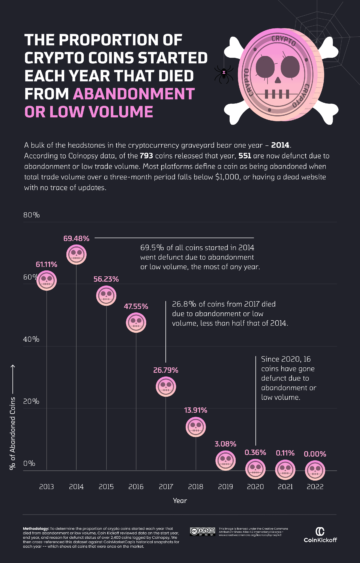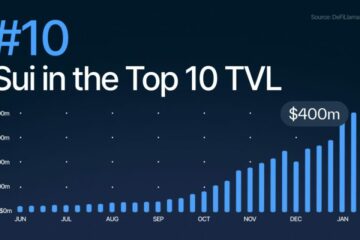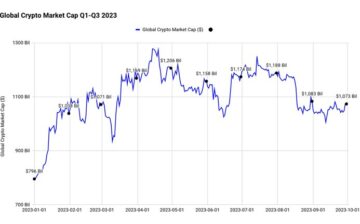
The collapse of FTX has rippled across the crypto industry like an earthquake, causing the downfall of other crypto-related startups including BlockFi, Genesis Trading, Galaxy Digital, and Voyager Digital.
The latest casualty is CoinDesk, a crypto publication outlet owned by parent company Digital Currency Group (DCG). For some of you who have deep pockets, this could be a great opportunity to buy some of the world’s most influential crypto publication media outlets.
The Wall Street Journal (WSJ) reported that CoinDesk has tapped bankers for a potential sale. According to the report, CoinDesk is exploring all options including a partial or full sale of itself as the crypto crisis deepens at parent company DCG, WSJ said. CoinDesk hired advisors at Lazard to explore a potential sale. The move would also remove the publication remove it from Barry Silbert’s Digital Currency Group.
“Over the last few months, we have received numerous inbound indications of interest in CoinDesk,” CEO Kevin Worth said in an emailed statement.
Founded in 2013, CoinDesk made headlines in November last year after the publication broke the first story about potential balance sheet improprieties at Sam Bankman-Fried’s Alameda Research. The report later caused the FTX’s house of cards to come crashing down, ultimately leading to the implosion of FTX and the arrest of Bankman-Fried and multiple regulatory probes.
FTX contagion also hit CoinDesk sister company Genesis, a crypto lender also owned by DCG that’s hired advisors for a potential bankruptcy filing after freezing withdrawals and loan origination. The Securities and Exchange Commission (SEC) dropped the hammer on crypto lender Genesis and Gemini, a crypto exchange founded by the Winklevoss twins. SEC on Thursday charged Genesis and Gemini with allegedly selling unregistered securities in connection with a high-yield product offered to depositors.
In February 2021, Gemini and Genesis partnered in February 2021 on a Gemini product called Earn, which touted yields of up to 8% for customers. According to the SEC, Genesis then loaned Gemini users’ crypto and sent a portion of the profits back to Gemini, which then deducted an agent fee, sometimes over 4%, and returned the remaining profit to its users.
- SEO Powered Content & PR Distribution. Get Amplified Today.
- Platoblockchain. Web3 Metaverse Intelligence. Knowledge Amplified. Access Here.
- Source: https://techstartups.com/2023/01/19/coindesk-exploring-selling-crisis-deepens-parent-company-dcg-due-ftx-contagion/
- 2021
- a
- About
- According
- across
- advisors
- After
- Agent
- Alameda
- ALAMEDA RESEARCH
- All
- allegedly
- and
- arrest
- back
- Balance
- Balance Sheet
- bankers
- Bankman-Fried
- Bankruptcy
- Bankruptcy Filing
- BlockFi
- Broke
- buy
- called
- Cards
- caused
- causing
- ceo
- charged
- Coindesk
- Collapse
- come
- commission
- company
- connection
- Contagion
- could
- Crashing
- crisis
- crypto
- crypto exchange
- Crypto Industry
- crypto lender
- Currency
- Customers
- DCG
- deep
- depositors
- digital
- digital currency
- digital currency group
- Digital Currency Group (DCG)
- down
- downfall
- dropped
- earn
- Earthquake
- exchange
- explore
- Exploring
- fee
- few
- Filing
- First
- Founded
- Freezing
- from
- FTX
- ftx contagion
- full
- Galaxy
- Galaxy Digital
- Gemini
- Genesis
- genesis trading
- great
- Group
- Headlines
- Hit
- House
- HTTPS
- implosion
- in
- Including
- indications
- industry
- Influential
- interest
- IT
- itself
- journal
- Last
- Last Year
- latest
- leading
- lender
- loan
- made
- Media
- months
- most
- move
- multiple
- November
- numerous
- offered
- Opportunity
- Options
- Other
- Outlets
- owned
- parent company
- partnered
- plato
- Plato Data Intelligence
- PlatoData
- pockets
- potential
- Product
- Profit
- profits
- Publication
- received
- regulatory
- remaining
- remove
- report
- Reported
- research
- Said
- sale
- Sam
- SEC
- Securities
- Securities and Exchange Commission
- Selling
- sister
- some
- Startups
- Statement
- Story
- street
- Tapped
- The
- to
- touted
- Trading
- Twins
- Ultimately
- unregistered
- unregistered securities
- users
- Voyager
- Voyager Digital
- Wall Street
- Wall Street Journal
- which
- WHO
- Winklevoss
- Winklevoss Twins
- Withdrawals
- world’s
- worth
- would
- WSJ
- year
- yields
- zephyrnet












